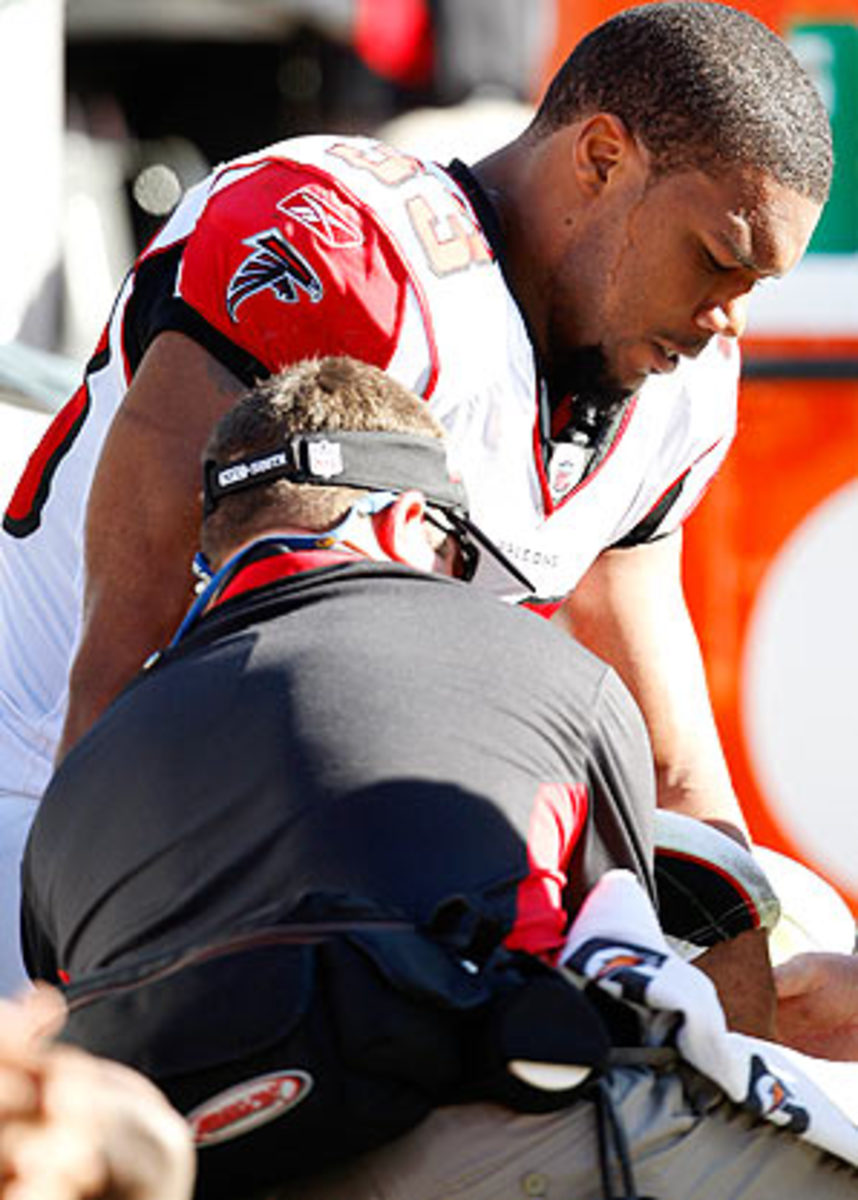
Five reasons why longer regular season would work in the NFL
And against that backdrop, the NFL is seriously considering adding two more regular season games? Really? Well, I'm all for it.
By now you've heard the arguments that a longer season would decimate rosters so completely that playoff games would feature teams that were a shell of themselves. That it could conceivably shorten the careers of some marquee players. But I think there are a few reasons additional games might be worth it.
• New stars emerge. It happens every year without fail, and it usually happens as a result of a front-line player getting injured. The emergence last season of quarterback Matt Cassel after Tom Brady tore an ACL is an easy example, but there are others. For a player who wasn't a high draft choice, an injury to the player in front of him on the depth chart is often the only way he'll get an opportunity to showcase his ability in a game-on-the-line situation.
Heck, who knows when Brady himself would have gotten an opportunity were it not for the hit the Jets' Mo Lewis put on Drew Bledsoe in 2001. The same holds true for James Harrison of the Steelers and Pierre Thomas of the Saints. Even in the postseason, backups like Jeff Hostetler and Frank Reich have become quasi-stars by leading their teams to huge playoff victories.
That is not to say that injuries are a good thing, because they are not. The fact remains, however, that injuries are what it takes a lot of times for some players to get their opportunity and run with it.
• Injuries add intrigue. Contrary to those who believe injuries to key players ruin the season, I find the opposite to be true. Injuries are the variables that make an NFL season fairly unpredictable. The war of attrition can be the great equalizer at times. If nobody ever got hurt, a certain amount of the drama and unknown would be removed.
Injuries, or at least the threat of them, are already a very big part of the NFL. They force organizations to build their teams the right way, making sure that they have depth in case a key player or players go down. That said, it's utterly amazing how often a team gets an injury at the exact position it can least afford. That's what is so great about the NFL. Weaknesses are almost always revealed and often exploited.
• More games likely means more jobs and opportunities. I can certainly understand why front-line starters who have significant contracts would be against adding more games. There is really no upside for them, unless they can get greater compensation as a result. But there are a lot of players in the middle or at the bottom of the roster who would stand to benefit greatly from an expanded season, in any number of ways.
For one, the league would have to look very hard at adding more roster spots, which is music to the ears of bottom feeders and bubble players everywhere. And for those critics who assume there will be more injuries, that would mean more players likely going on the Injured Reserve list, which would entail more players getting signed to an active roster during the season. The end result, of course, is those players will accumulate an additional credited season towards their pension and other player benefits. Even if the league doesn't add to the 53-man roster, it's likely more men will get paid to play football.
• It may not be the Armageddon that people are making it out to be. How do we really know the injury situation would be that bad if an extra game or two were added? I'm sure the NFL will examine some cold, hard data on the subject before any determination is made, but my perception is the injury situation wouldn't be nearly the catastrophe that some predict. I don't recall players being carted off the field in droves during Weeks 18 and 19 of playoffs past. In fact, in the 31 years since the NFL went from a 14-game to a 16-game regular season schedule, things have seemed to go pretty well.
• Who doesn't want more football? According to the L.A. Times, through the first nine weeks of the 2009 season, ratings for NFL games are up 15% from 2008, with an average of 17.2 million viewers per game -- the most in 20 years, according to the league. The NFL has a fantastic product, made even more popular by fantasy football, and more games would allow the public to consume even more of that product.
Plus, adding another game or two may be the only way the Player's Association and the league can reach an accord on a new collective bargaining agreement. The extra revenue, provided it is indeed significant, could be exactly what is needed to avoid a lockout in 2011. In other words, the choice could be more football or no football. That seems like a pretty easy one if you ask me.




